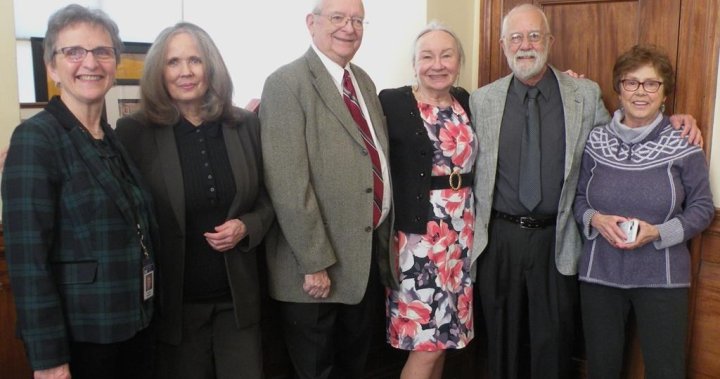
‘Resurgence’ of French in Maine spurs hope, but fears, challenges remain for francophones
Global News
Despite the challenges facing French in Maine, one woman said she remains hopeful for its future. She also encouraged Quebecers to cherish their connection to the language.
For decades, Cecile Thornton had little motivation to speak French. Born into the minority francophone community in Lewiston, Maine, she says she and her family were often the target of ridicule.
“I was ashamed of my francophone roots,” she recalled in a recent phone interview in French. “There were a lot of people who laughed at and mocked us.” Thornton, whose maiden name is Desjardins, married an anglophone and didn’t teach her children French. It eventually disappeared from her daily life, and she says she lost her ability to converse in the language as a result.
That changed in 2016, when she began attending French-language meet-ups led by local immigrants from West Africa. Thornton says those conversations inspired her to reconnect with her mother tongue. “The African community helped me feel proud to be Franco,” she said.
Now 68 years old, Thornton has become an advocate for French speakers in Maine, one of several members of the state’s francophone community striving to preserve their language and heritage. They hope a wave of recent African immigration and a growing recognition of the state’s Franco-American population will spark renewed interest in their cause. But the number of French speakers in Maine is dwindling, leading some to fear for their future.
Like Thornton, many francophone Mainers decided not to pass down their language in the 20th century. Children who did speak French faced further repression. A 1919 state law that banned education in French “had a long-term impact on how people perceived the value of their language,” said Patrick Lacroix, director of the Acadian Archives, housed in the University of Maine at Fort Kent. Maine only repealed the rule in 1969.
U.S. Census Bureau data underline the francophone community’s growing vulnerability. The agency estimated that about 30,000 of the more than 1.3 million people in the state spoke French at home in 2022, down from 33,000 in 2018 and from more than 40,000 four years before that.
Don Lévesque, a 76-year-old member of the centuries-old Acadian population in northern Maine, says his outlook on local efforts to promote French changes daily. “Sometimes I’m optimistic, sometimes I’m not,” he confessed in an interview.
Lévesque is the president of Le Club Français in the town of Madawaska on the border with New Brunswick, where he now lives. Founded in the 1990s by a group of residents concerned about the survival of their language, Le Club Français now offers French pre-kindergarten and elementary after-school programs, as well as conversational French courses for adults, he said.













